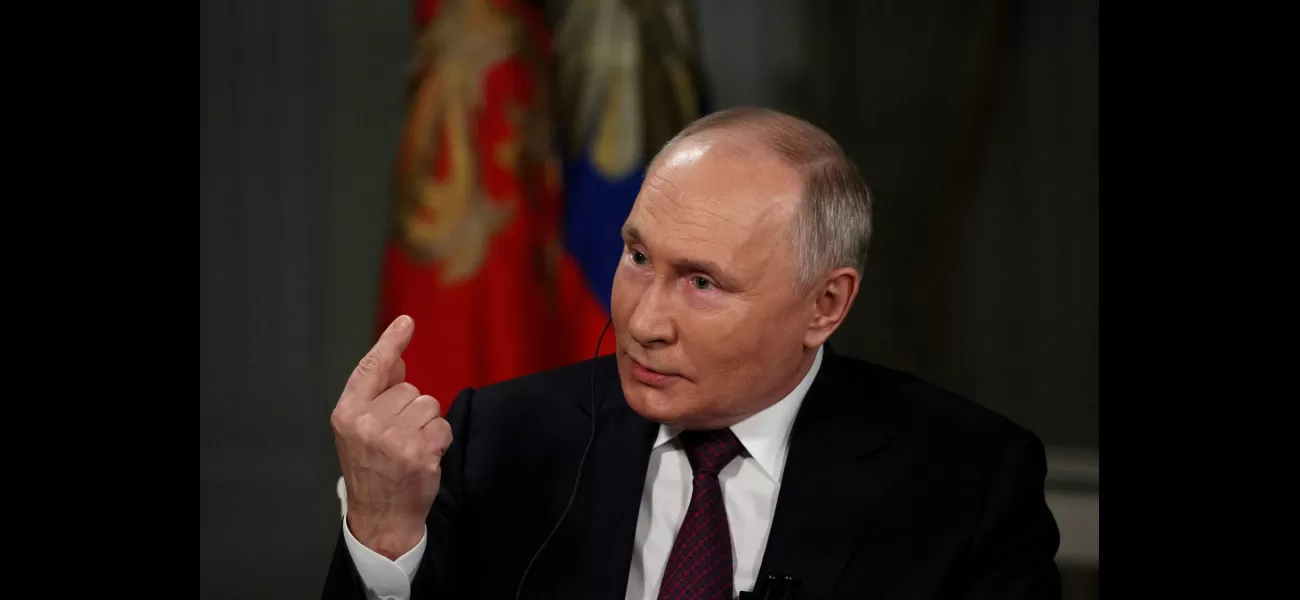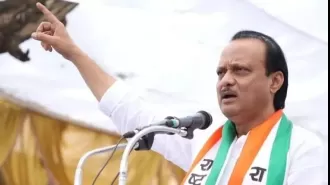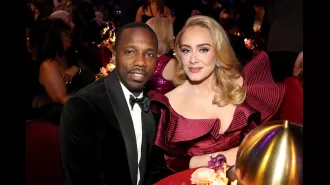Putin may be planning for an earlier-than-anticipated conflict with Nato.
A research group cautions that Russia may be heading towards a bigger conflict sooner than expected.
March 22nd 2024.

As the tension between Russia and Nato continues to escalate, there are growing concerns about the possibility of a large-scale conflict in the near future. Recent actions and statements from the Russian government indicate that they are preparing for such a scenario, and American policy research group The Institute for the Study of War has reached the same conclusion.
According to their analysis of military, economic, and financial indicators, it seems that Russian President Vladimir Putin is taking steps to stabilize the country's economy in preparation for a potential conflict with Nato. This goes beyond the ongoing conflict in Ukraine, as Putin is also focusing on expanding their conventional capabilities in case they decide to increase their aggression.
One of the main ways the Russian military is preparing for this potential conflict is through structural reforms. Defense Minister Sergei Shoigu has announced plans to form two combined-arms armies and 14 divisions and 16 brigades by the end of the year. However, some experts, including the ISW, are skeptical that Russia currently has the resources and training capacity to properly staff these divisions in the short term.
In addition to military reforms, there have also been significant changes within the Russian government that suggest they are preparing for a long-term conflict. This includes the appointment of Lieutenant General Andrei Bulyga as the deputy defense minister. It is clear that the Russian government is taking this potential conflict seriously and is making strategic moves to strengthen their military capabilities.
Meanwhile, Nato is also taking action to prepare for the possibility of a conflict with Russia. Polish President Andrzej Duda recently called for Nato to increase its defense spending in order to be ready for any potential attack. He cited research showing that Putin may be planning to attack Nato in 2026 or 2027, and emphasized the urgency of preparing for such a scenario.
Despite the tensions and preparations on both sides, Duda stressed that the ultimate goal is to avoid a war. He believes that by increasing defense efforts and creating a strong deterrent, Nato can prevent any potential attacks from Russia. However, it is crucial for all parties involved to remain vigilant and prepared in order to maintain peace and stability in the region.
According to their analysis of military, economic, and financial indicators, it seems that Russian President Vladimir Putin is taking steps to stabilize the country's economy in preparation for a potential conflict with Nato. This goes beyond the ongoing conflict in Ukraine, as Putin is also focusing on expanding their conventional capabilities in case they decide to increase their aggression.
One of the main ways the Russian military is preparing for this potential conflict is through structural reforms. Defense Minister Sergei Shoigu has announced plans to form two combined-arms armies and 14 divisions and 16 brigades by the end of the year. However, some experts, including the ISW, are skeptical that Russia currently has the resources and training capacity to properly staff these divisions in the short term.
In addition to military reforms, there have also been significant changes within the Russian government that suggest they are preparing for a long-term conflict. This includes the appointment of Lieutenant General Andrei Bulyga as the deputy defense minister. It is clear that the Russian government is taking this potential conflict seriously and is making strategic moves to strengthen their military capabilities.
Meanwhile, Nato is also taking action to prepare for the possibility of a conflict with Russia. Polish President Andrzej Duda recently called for Nato to increase its defense spending in order to be ready for any potential attack. He cited research showing that Putin may be planning to attack Nato in 2026 or 2027, and emphasized the urgency of preparing for such a scenario.
Despite the tensions and preparations on both sides, Duda stressed that the ultimate goal is to avoid a war. He believes that by increasing defense efforts and creating a strong deterrent, Nato can prevent any potential attacks from Russia. However, it is crucial for all parties involved to remain vigilant and prepared in order to maintain peace and stability in the region.
[This article has been trending online recently and has been generated with AI. Your feed is customized.]
[Generative AI is experimental.]
0
0
Submit Comment





